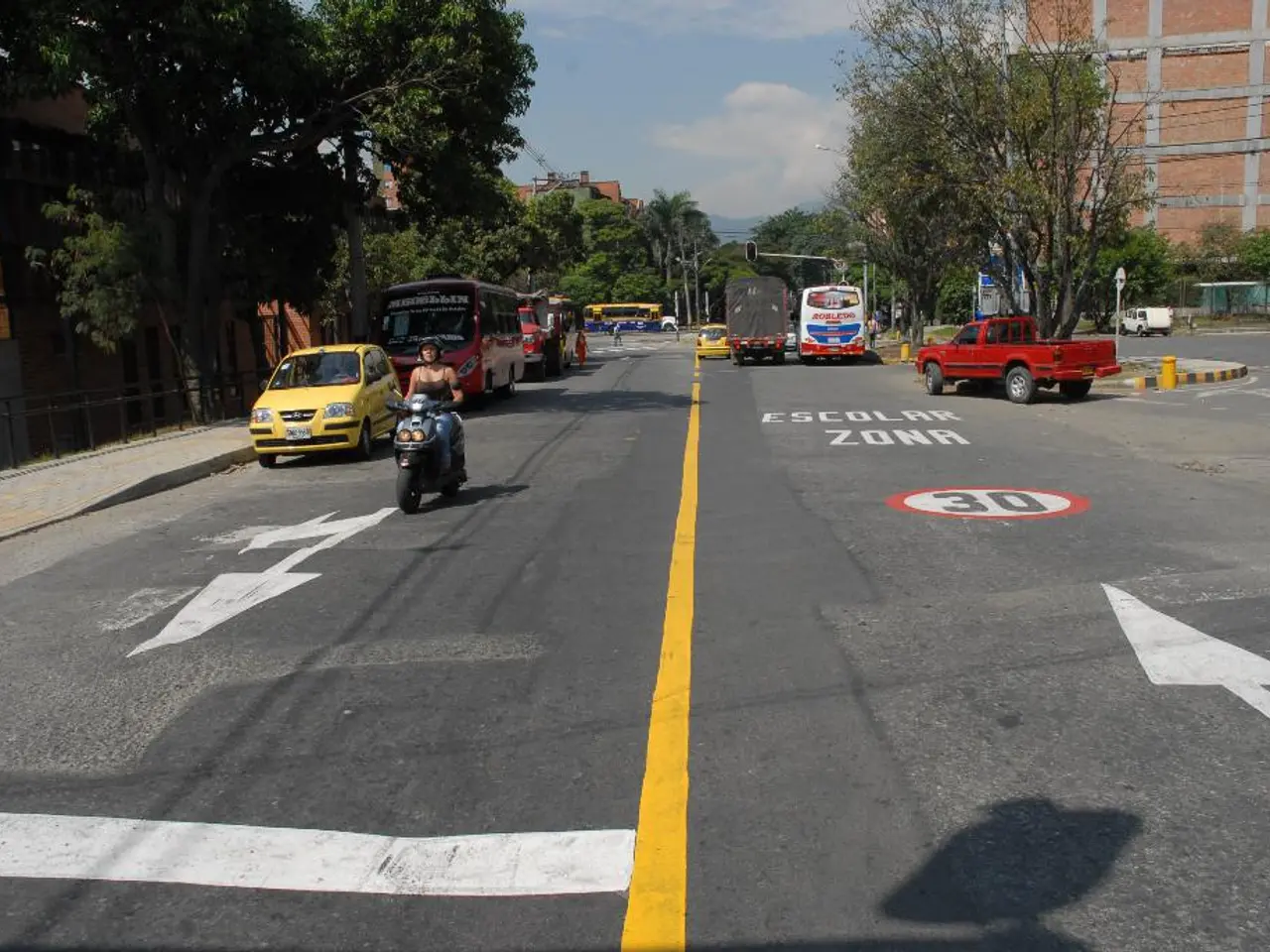Heed the Road: Avoid the Toll of Environmental Zones Abroad, Especially during Summer Escapes
Keep an eye on environmental regulations when traveling overseas (ADAC) - Foreign Environmental Zoning Regulations Implemented by ADAC
Heading to Europe for your summer getaway? Prepare yourself for some unexpected roadblocks, beyond those speed limits. Don't just jet off without getting the lowdown on environmental zones in cities outside your home turf, as advised by the ADAC. As Thomas Muether, spokesman for ADAC North Rhine, put it, "It's better to have an informed trip than to deal with expensive fines later."
This isn't merely about keeping it slow and steady. In Europe's urban centers, access is often restricted or outright banned for certain petrol or diesel vehicles, putting these city-dwellers in emissions-controlled zones, or even slapping on a city toll. In some places, even a paid environmental sticker is a prerequisite for entry.
The ADAC flags cities like Antwerp, Brussels, and Ghent in Belgium, where German vehicles require registration before treading their streets. In France, you'll need an environmental sticker to swoon your way through a bunch of cities either permanently or temporarily. The Netherlands has environmental zones, too, which lay down the law harder on older cars based on their emissions standards.
Driving your own wheels in major European cities? The ADAC advises taking the time to learn about any local regulations that might apply. Neglecting them often leads to hefty fines.
What Exactly are Environmental Zones?
Environmental zones are areas in cities that impose restrictions on vehicles to lower pollution. These zones may be called Low Emission Zones (LEZs) or Zones à Faibles Emissions (ZFE) in France. The French government will tighten LEZ regulations by 2025, banning older diesel and petrol vehicles under the Climate and Resilience Act.
Staying Compliant and Steering Clear of Fines
- Do Your Homework: Research the environmental zones for your destination cities since regulations differ from place to place. City or government transport websites usually offer up-to-the-minute guidance.
- Check Vehicle Classification: Many European countries use emission stickers or badges, like the Crit'Air badge in France, to determine whether your vehicle is legally allowed to enter emission-controlled zones. Make sure your vehicle's classification is current for the zones you plan to traverse.
- Alternative Transport: If restrictions apply, consider using public transport, car-sharing with compliant vehicles, or renting low-emission or electric vehicles.
- Keep on Top of Updates: Environmental regulations are not static, so staying informed about official notices helps you stay fines-free.
- Stay within the Lines: Environmental zones are typically marked with clear signage, so following entry rules and observing vehicle restrictions is key.
Failing to heed environmental zone regulations can result in costly fines or penalties, often enforced by automated cameras or patrols. To sum up, Europe's cities, particularly in France, are stepping up efforts to limit pollution from older, more-polluting vehicles. Take the time to verify your vehicle's compliance and acquaint yourself with local regulations for each city on your summer vacation itinerary to dodge fines and help maintain cleaner urban air quality.
- In addition to understanding the community policy, it's crucial to familiarize yourself with the environmental-science aspects of the cities you're visiting, especially when considering summer travels.
- If your vehicle requires an environmental sticker to enter certain cities, ensure that it's properly classified and the sticker is up-to-date, such as the Crit'Air badge in France.
- To steer clear of expensive fines and penalties, research environmental zones in your destination cities, check vehicle classifications, and stay informed about updates in regulations, especially in French cities where efforts are being made to limit pollution from older, more-polluting vehicles.




